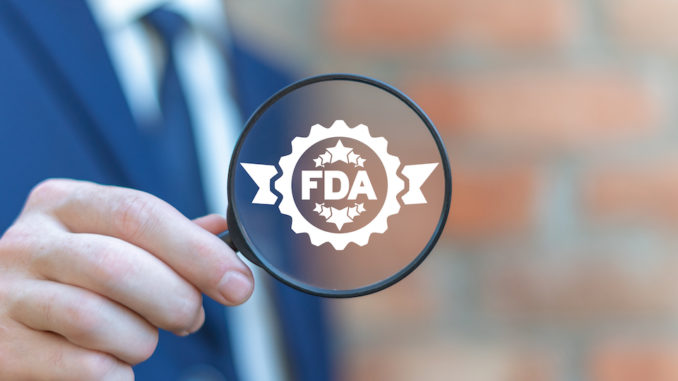
The Food and Drug Administration (FDA) is informing health care providers and patients of the potential risk of serious or life-threatening infections with the use of fecal microbiota for transplantation (FMT). The agency is now aware of infections caused by enteropathogenic Escherichia coli (EPEC) and Shigatoxin-producing Escherichia coli(STEC) that have occurred following investigational use of FMT that it suspects are due to transmission of these pathogenic organisms from FMT product supplied by a stool bank company based in the United States. The stool bank provides FMT product manufactured from pre-screened donors to healthcare providers and researchers.
In accordance with FDA’s disclosure regulations and general practices, FDA is not disclosing the name of the company at this time.
Summary of the Issue
- FDA has been notified of six patients who received the company’s FMT product for Clostridium difficile (also called Clostridioides difficile or C. difficile) infection not responsive to standard therapies and who developed infections caused by EPEC (two patients) or STEC (four patients). Four of the six patients required hospitalization.
- The two patients who developed EPEC infection received FMT product that was prepared from stool from two different donors.
- The four patients who developed STEC infection received FMT product that was prepared from stool from a single donor.
- Additionally, the company notified the FDA of two patients who died following receipt of FMT product from the donor associated with the STEC infections. Both patients had chronic medical conditions and received FMT for C. difficileinfection. Both patients developed diarrhea after receipt of the FMT product, but their stool was not tested for STEC. These patients died before the four patients with the STEC infections had been reported to either the company or FDA. It is not known if STEC infection contributed to these deaths.
- STEC are pathogenic E. coli that cause painful bloody diarrhea. EPEC is another type of E. coli. Some EPEC strains cause non-bloody diarrhea in very young children, primarily in developing countries. Other EPEC strains may cause diarrhea in adults, including in developed countries. Both STEC and EPEC may cause other symptoms, including fever, abdominal pain and vomiting.
- The company’s process to determine whether stool from a donor can be used to prepare FMT product includes donor screening with questions that address gastrointestinal and other illnesses as well as risk factors for colonization with organisms that could potentially cause disease (pathogenic organisms). The process also includes periodic testing of stool from donors for certain pathogenic organisms, including STEC. Considering the expected low occurrence of EPEC in asymptomatic adults in the United States, the company does not currently test donor stool for EPEC. The company does retain samples from every stool donation that is used to prepare FMT product.
- The company tested retained donor samples when they were notified that patients who had received FMT product became ill and were diagnosed with EPEC infections. For both donors, the retained samples of the stool that was used to manufacture the FMT product that these patients received were found to be positive for EPEC.
- The donor associated with the STEC infections had previously tested negative for STEC using an immunoassay, as per the company’s processes for the periodic testing of donors described above. The company tested retained donor samples when they were notified that patients who had received FMT product became ill and were diagnosed with STEC infections. For all four patients, the retained samples of the stool that was used to manufacture the FMT product that was administered to them were tested using a nucleic acid test and were found to be positive for STEC.
- Bacterial isolates from the patients’ stool are not available to determine if the EPEC or STEC organisms from the patients are genetically identical to the organisms from the stool donors.
Information for Health Care Providers and Patients
In July 2013, FDA issued a guidance document stating that it intends to exercise enforcement discretion under limited conditions regarding the IND requirements for the use of FMT products to treat C. difficile infection in patients that have not responded to standard therapies.i The guidance states that FDA intends to exercise enforcement discretion provided that the treating physician obtains adequate consent for the use of FMT from the patient or his or her legally authorized representative. The consent should include, at a minimum, a statement that the use of FMT to treat C. difficile is investigational and a discussion of its potential risks.
FDA is informing patients and healthcare providers of the potential risk of transmission of pathogenic bacteria by FMT products and the resultant serious adverse reactions that may occur.
Patients considering FMT for the treatment of C. difficile infection should speak to their health care provider to understand the associated risks.
Actions
- FDA worked with the company to ensure that the three individuals who donated stool that was associated with the adverse events described in this Safety Alert are excluded from future stool donations.
- The company issued a recall of the FMT product prepared from the stool of these three donors. FDA worked with the company to ensure that healthcare facilities/physicians who received affected FMT product are aware of the recall.
- FDA is further evaluating the procedures used for testing of donor stool used in the preparation of FMT products to determine the need for additional interventions.
Reporting Adverse Events
FDA encourages all health care providers who have administered FMT products to their patients to report suspected adverse events to the FDA at 1-800-FDA-1088 or http://www.fda.gov/medwatch.
Source: https://www.fda.gov/vaccines-blood-biologics/safety-availability-biologics/safety-alert-regarding-use-fecal-microbiota-transplantation-and-risk-serious-adverse-events-likely

